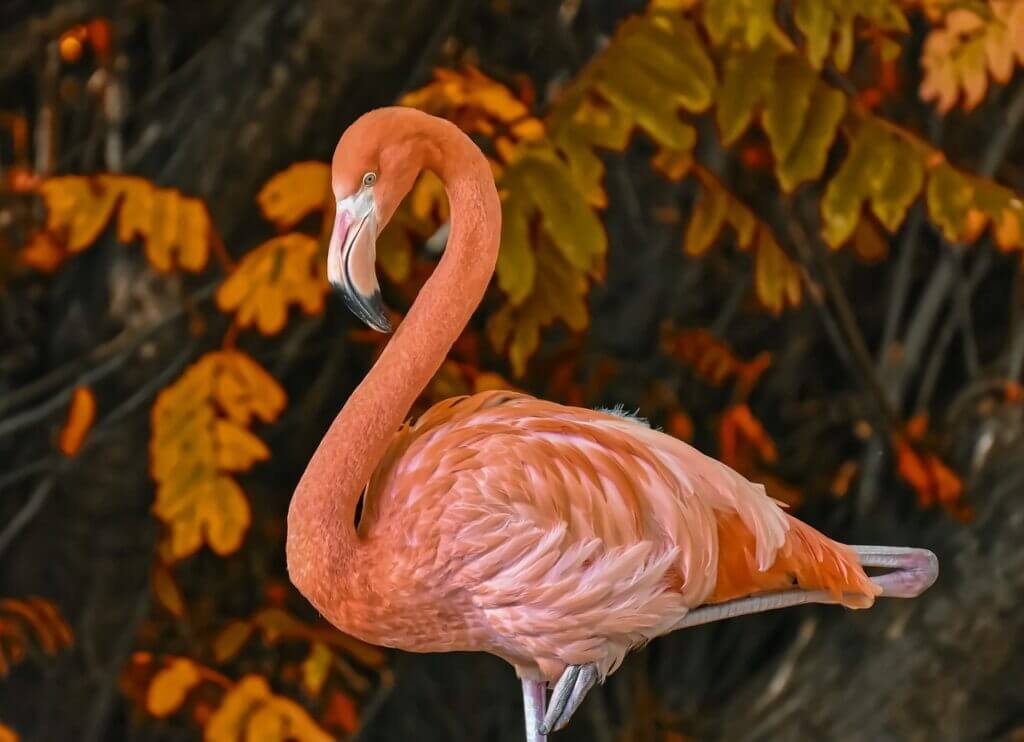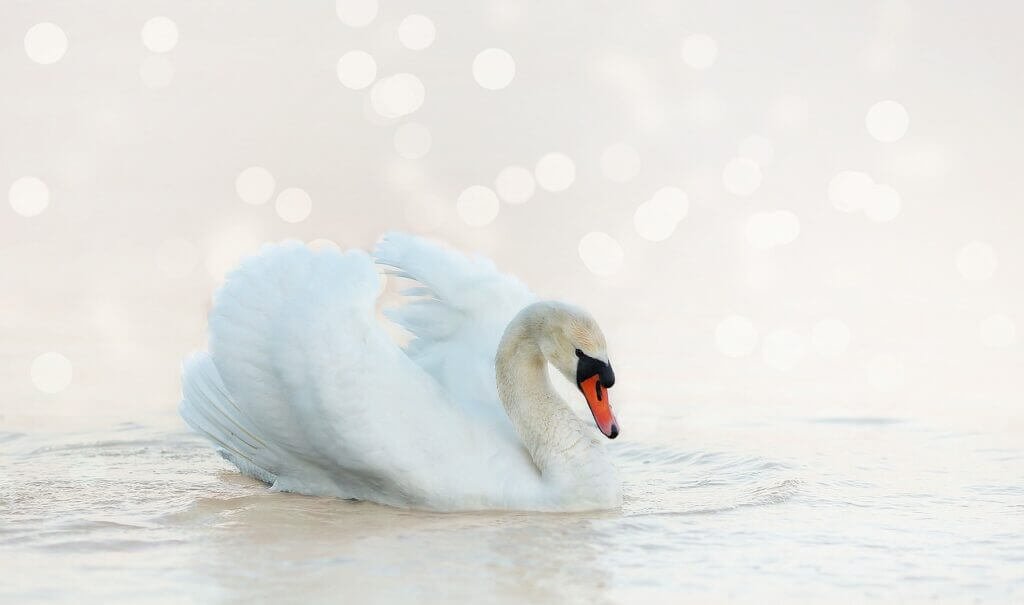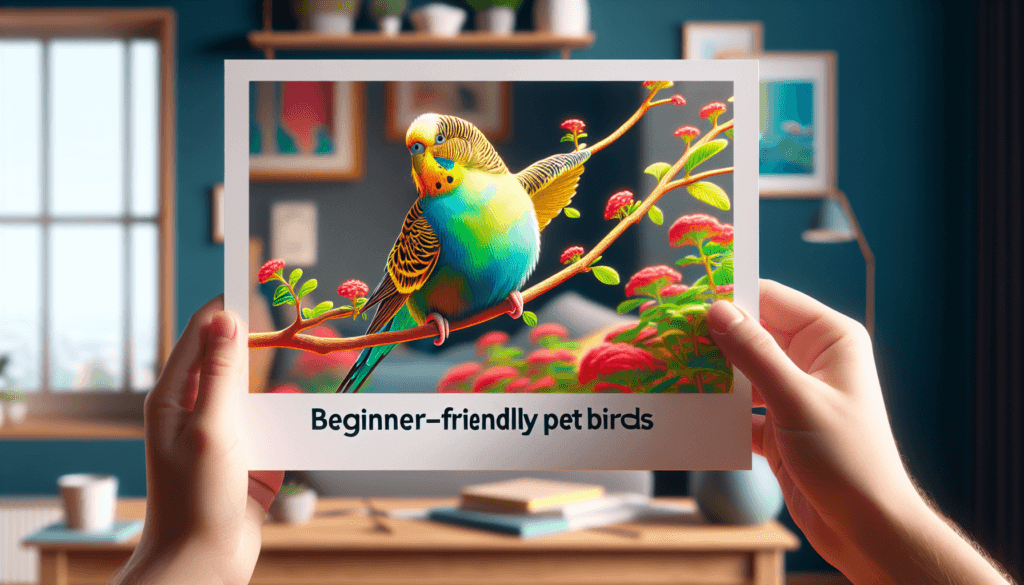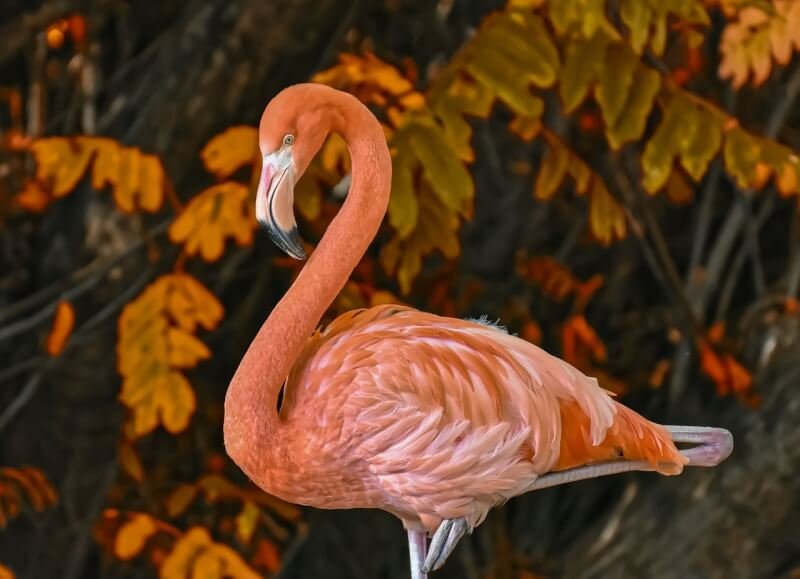Thinking of getting a pet bird but not sure where to start? Look no further! In this article, we will explore the best pet bird species for beginners. From the friendly and sociable Budgerigars to the colorful and talkative African Grey Parrots, we’ll discuss the characteristics, care requirements, and overall suitability of various bird species for novice bird owners. Whether you’re seeking a low-maintenance companion or a playful and interactive feathered friend, we’ve got you covered. So, get ready to embark on a delightful journey into the world of pet birds and discover which species will be the perfect fit for you. Are you considering getting a pet bird but not sure where to start? Don’t worry, we’ve got you covered! In this article, we will discuss the best pet bird species for beginners. We will dive into factors to consider, such as lifestyle and time commitment, space requirements, noise level, maintenance and care, as well as budget considerations. So, let’s get started on your exciting journey of finding the perfect feathered companion!
Lifestyle and Time Commitment
When choosing a pet bird, it’s important to consider your lifestyle and the time you can dedicate to them. Some birds require more social interaction and mental stimulation than others. If you have a busy schedule or are looking for a low-maintenance pet, certain bird species may be better suited for you. On the other hand, if you have plenty of time to spend with your new friend, you can consider birds that thrive on social interaction.
Space Requirements
Another crucial aspect to keep in mind is the space requirements for your pet bird. Different species have varying needs when it comes to cage size and living arrangements. Some birds are content with smaller cages, while others need spacious enclosures to fly and exercise. Consider the available space in your home and choose a bird species that can comfortably live within those parameters.
Noise Level
Noise level is a significant factor to consider, especially if you live in an apartment or have close neighbors. While all birds vocalize to some extent, certain species are known for their loud calls or constant chatter. If you’re looking for a quieter pet bird, you’ll want to choose a species that is not known for being excessively noisy.
Maintenance and Care
The level of maintenance and care required for a pet bird can vary greatly between species. Some birds require more frequent cage cleanings, specialized diets, or specific grooming needs. Consider the time and effort you are willing to invest in your bird’s care and choose a species that aligns with your capabilities.
Budget Considerations
Last but not least, budget considerations are essential when choosing a pet bird. The initial cost of purchasing a bird and the necessary supplies should be taken into account. Additionally, ongoing expenses such as food, toys, and vet care should be considered. Remember that some birds have longer lifespans, which means you will have to provide for them for many years to come.
Now, let’s move on to the exciting part – discussing the best pet bird species for beginners. These species have been selected based on their suitability for beginners in terms of ease of care, trainability, and overall compatibility.

Budgerigar
Description
Budgerigars, commonly known as budgies or parakeets, are small, colorful birds native to Australia. They are the most popular pet bird species worldwide, known for their vibrant plumage and sociable nature.
Personality
Budgerigars are highly intelligent birds with playful and inquisitive personalities. They are known for their ability to learn tricks and mimic human speech. Despite their small size, budgies have big personalities and can provide endless entertainment with their joyful antics.
Care Requirements
Budgies are relatively low-maintenance birds, making them an excellent choice for beginners. They require a spacious cage with plenty of toys and perches to keep them entertained. A balanced diet consisting of pellets, fresh fruits, and vegetables, as well as regular exercise and social interaction, is crucial for their well-being.
Training Potential
Budgerigars are highly trainable and can learn a wide range of tricks and behaviors. With patience and positive reinforcement, they can be taught to perch on your finger, perform cute tricks, and even mimic simple phrases. Their eagerness to learn and interact with their owners makes them a fantastic option for those interested in training their bird.
Canary
Description
Canaries are small songbirds originating from the Canary Islands. They are renowned for their melodic singing abilities and their beautiful, vibrant plumage.
Personality
Canaries are generally more independent and less social than budgies. They are known for their captivating and soothing songs, which can bring a sense of tranquility to any home. While they may not enjoy physical interaction as much as some other bird species, they can still make delightful companions with their enchanting melodies.
Care Requirements
Canaries have more straightforward care requirements compared to some other species. They need a reasonably sized cage with enough perches and toys that provide mental stimulation. A balanced diet of high-quality seeds and occasional fresh fruits and veggies is crucial for their health. Due to their sensitive respiratory system, it’s essential to keep their environment clean and free from any potential hazards.
Training Potential
Canaries are not known for their trainability in the same way as budgerigars or cockatiels. They are more appreciated for their natural talent for singing. However, with patience and positive reinforcement, you may be able to train your canary to perch on your finger or follow simple commands.

Cockatiel
Description
Cockatiels, often referred to as “tiels,” are small to medium-sized birds native to Australia. They are beloved for their striking crests, cheerful disposition, and their ability to mimic sounds.
Personality
Cockatiels are incredibly social birds and thrive on interaction with their human companions. They love being the center of attention and are known for their affectionate and playful nature. Cockatiels are also famous for their ability to whistle, sing, and even mimic simple tunes.
Care Requirements
Cockatiels are relatively low-maintenance birds, making them an ideal choice for beginners. They need a spacious cage with plenty of toys and perches to keep them mentally and physically stimulated. A balanced diet of pellets, fresh fruits, vegetables, and occasional treats is crucial for their well-being.
Training Potential
Cockatiels are highly trainable and can learn various tricks and behaviors. With consistent training and positive reinforcement, they can be taught to step up onto your hand, mimic sounds, and even perform simple tricks. Their intelligence and eagerness to please their owners make them a delight to train.
Lovebird
Description
Lovebirds are small, colorful parrots native to Africa. They are known for their strong pair bonding and charming personalities.
Personality
Lovebirds derive their name from their strong, affectionate bonds with their mates or owners. They are social birds that thrive on companionship, so it’s advisable to keep them in pairs or provide sufficient daily interaction if they are the only bird in the household. Lovebirds are lively, curious, and can provide endless entertainment with their playful antics.
Care Requirements
Lovebirds require a relatively larger cage compared to some other small bird species. They need plenty of toys, perches, and mental stimulation to keep them active and entertained. A balanced diet consisting of pellets, fresh fruits, vegetables, and occasional treats will ensure their nutritional needs are met.
Training Potential
Lovebirds are intelligent birds and can be trained to perform a variety of tricks and behaviors. With proper training techniques and consistency, they can learn to step up onto your hand, pick up objects, and perform simple tricks. However, it’s important to note that lovebirds may have a bit of a stubborn streak, so patience and positive reinforcement are key when training them.

Parrotlet
Description
Parrotlets are small parrots native to Central and South America. Despite their small size, they possess big personalities and can form strong bonds with their owners.
Personality
Parrotlets are known for their confident and fearless personalities. Despite their small stature, they have the energy and enthusiasm of larger parrot species. Parrotlets can be quite lively and will appreciate having plenty of toys and mental stimulation to keep them occupied.
Care Requirements
Parrotlets need a reasonably sized cage with plenty of toys and perches to provide enrichment. A balanced diet of pellets, fresh fruits, vegetables, and occasional treats is crucial for their overall well-being. Parrotlets also benefit from daily out-of-cage time to stretch their wings and socialize with their human companions.
Training Potential
Parrotlets are highly intelligent birds and can be trained to perform various tricks and behaviors. They can learn to step up onto your hand, perform basic commands, and even mimic sounds. Keep in mind that consistency and positive reinforcement are key when training parrotlets, as they respond best to gentle and patient interactions.
Finch
Description
Finches are small, sociable birds native to a variety of regions around the world. They are known for their melodic voices and stunning variety of plumage colors.
Personality
Finches are highly social birds and thrive in the company of other finches. They are known for their cheerful and lively chirping, which provides a pleasant ambiance in any home. While finches may not enjoy physical interaction as much as some other bird species, they are fascinating to watch as they engage in elaborate courtship rituals and build intricate nests.
Care Requirements
Finches are relatively low-maintenance birds and are well-suited for beginners. They require a spacious cage with plenty of perches, nesting materials, and toys for mental stimulation. A balanced diet consisting of high-quality finch seed mix, fresh water, and occasional leafy greens will provide them with proper nutrition.
Training Potential
Finches are not known for their trainability in the same way as budgerigars or cockatiels. They are appreciated more for their natural behaviors, such as singing and courtship displays. While they may not be taught tricks or commands, they can be encouraged to become more comfortable with their surroundings through consistent positive interactions.

Cockatoo
Description
Cockatoos are large parrots known for their distinctive crests and playful personalities. They are native to Australia, Indonesia, and the Philippines.
Personality
Cockatoos are highly social birds and form strong bonds with their human companions. They thrive on attention and are known for their affectionate and playful nature. Cockatoos are intelligent birds that require mental stimulation and plenty of toys to prevent boredom.
Care Requirements
Cockatoos have higher care requirements compared to some other pet bird species. They need a large, sturdy cage and plenty of toys to keep them physically and mentally active. A balanced diet consisting of pellets, fresh fruits, vegetables, and occasional treats is crucial for their health. Cockatoos also require regular exercise and social interaction outside of their cage to thrive.
Training Potential
Cockatoos are highly intelligent birds and can be trained to perform complex tricks and behaviors. With consistent training, positive reinforcement, and patient interactions, they can learn to mimic words and even solve puzzles. Their natural curiosity and intelligence make them an excellent choice for those interested in training their bird.
Pionus
Description
Pionus parrots are medium-sized parrots known for their gentle nature and beautiful feathering. They originate from South and Central America.
Personality
Pionus parrots are known for their calm and gentle temperament. They are generally quiet birds, making them a preferred choice for those seeking a less noisy companion. Pionus parrots form strong bonds with their owners and enjoy gentle interactions and affection.
Care Requirements
Pionus parrots require a reasonably sized cage with plenty of perches and toys for mental stimulation. A balanced diet consisting of pellets, fresh fruits, vegetables, and occasional treats will provide them with the nutrition they need. Pionus parrots also benefit from daily out-of-cage time to stretch their wings and engage in social interaction.
Training Potential
Pionus parrots are intelligent birds and can be trained to perform various commands and behaviors. While they may not be as inclined to mimic speech as other parrot species, they can still learn simple tricks and respond well to positive reinforcement. Patience, consistency, and building trust are vital when training Pionus parrots.
In conclusion, there are several pet bird species that are well-suited for beginners. Budgerigars, canaries, cockatiels, lovebirds, parrotlets, finches, cockatoos, Quaker parakeets, parrots, and Pionus parrots all have their unique qualities and characteristics that make them excellent choices for those venturing into the world of pet birds. Remember to consider factors such as lifestyle and time commitment, space requirements, noise level, maintenance and care, as well as budget considerations when selecting the best pet bird species for you. With proper care, love, and attention, your new feathered friend is sure to bring you joy and companionship for years to come. Happy bird hunting!


